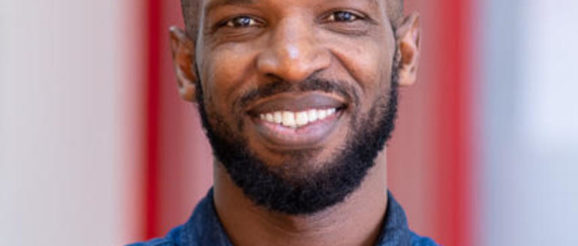How Impact Africa Network aims to change society via entrepreneurship, STEM, and innovation | ZDNet

Mark Karake is a Silicon Valley vet who returned to Nairobi to start Impact Africa Network, a startup studio that aims to create a hub of innovation and entrepreneurship.
Impact Africa Network CEO Mark Karake
Karake’s non-profit received attention from some big tech executives, including Jeff Wiener, executive chairman of LinkedIn. Karake outlined his experience as an African in Silicon Valley post. Wiener called out the effort and donated. Impact Africa Network is also looking to land donors for sums as little as $20 a month to sustainably fund its projects. I think of Impact Africa Network as a subscription in social good.
Impact Africa Network has a bevy of projects underway as well as a five-year plan and 2030 vision to create 10 companies, 10,000 high skill jobs, and $10 billion in value created.
In a wide-ranging interview (see full video above), Karake covered a lot of ground. Here are some core takeaways:
Entrepreneurship needs an economic safety net so workers will take risks. Karake’s efforts are focused on building “capacity around innovation and entrepreneurship.” He said:
What is needed here first is bottoms up capacity building. You actually have to get the talent ready to build this project. If you think about the way that works in the developed world, you’ve got Stanford. You’ve got Harvard, you’ve got MIT, and you’ve got people who come from generations of business ownership and they’ve been exposed to scale. Over here, the majority of people don’t come from entrepreneurial background. They are being socialized to get a job. If you graduate from a university, the expectation is you will go get a job as quickly as you can to support your family.
Impact Africa Network needs funding to offset the lack of generational wealth that gives entrepreneurs the air cover to take risks. “We have a very risk-averse society just because there’s not safety. That creates a certain mindset in terms of how people approach, the decisions they make, and the opportunities can see,” said Karake, who said the goal of Impact Africa network is to teach its fellows to develop skills, execute and build companies.
A non-profit model is better suited than venture capital to make a difference in Africa. Karake said bootstrapping companies will teach Impact Africa Network’s participants over a longer time frame. If Karake’s efforts nail the basics of business first, the venture funding may come years later. The monthly donation model can float Impact Africa Network at scale. “$20 a month is what we ask. Some people can step up to high amounts or whatever they feel comfortable with. But we look at the scale because the advantage we have here is low-cost talent with the effort to actually get that talent game ready. A little bit amount of capital can go a long way here,” Karake said.
Will the Impact Africa Network model work in the US? Karake said it’s unclear. Kenya has a cost of talent that makes fundraising easier and that would be challenging in the US. Parts of the model may work but would require experimentation.
There are multiple business opportunities locally and regionally. Karake said that Africa’s demographics mean it has the potential to be a key STEM hub. “I personally believe that Africa has a shot at becoming the engine room of STEM talents to the world. The developing world is aging, and there’s more demand for STEM talents across the globe,” he said. Africa’s financial services market is another key opportunity with fintech and digitizing processes in everything from banking to real estate. The opportunities are local and regional for the most part, said Karake.
Entrepreneurship can drive social change. Karake said if a generation of entrepreneurs develops in Africa, it will “create the new heroes in society.” “I’m fully focused on not just how we build startups, but how do we change our society by building innovation leaders to actually influence and building community,” he said.
